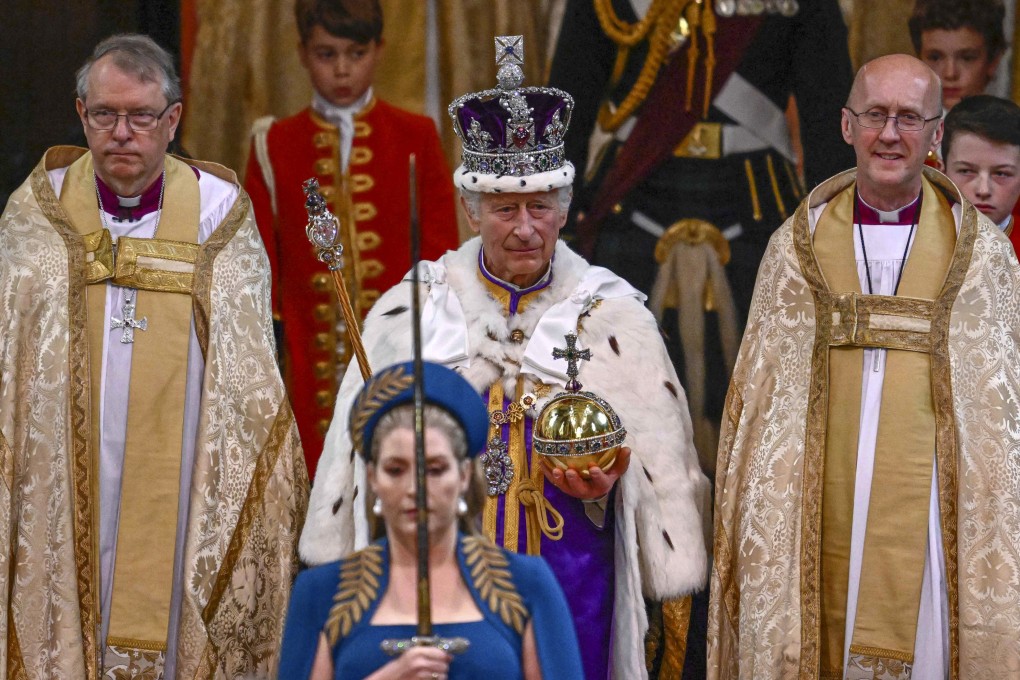My Take | Coronation was a typically British affair but it did not appeal to all
- The ceremony, steeped in tradition, marked the beginning of a new era. Yet Charles will need to modernise the monarchy if it is to survive

The crowning of a king is a rare event these days and the coronation of King Charles III, with all its pageantry, tradition and royal splendour, was a spectacle of the kind Britain is famous for.
Today, I am off to one of the almost 4,000 street parties to be held in honour of the new sovereign. It takes the form of a “big lunch” on the village green. Union jacks are flying and there is lots of bunting. The church bells will ring and a jazz band will play. Sadly, the British weather might put a dampener on the celebrations. As one headline-writer put it: “long may he rain.”
The ceremony, watched by millions around the world, was impressive, if you like that sort of thing. But to make it contemporary and relevant, if not quite cool and trendy, was always going to be an uphill task.
At its core, the proceedings date back to the crowning of King Edgar in 973. There were jewel-encrusted crowns, swords, sceptres and an orb. Charles was anointed with holy oil, signifying that he is God’s choice. It is, of course, an anachronism. But the archaic rituals are integral to the coronation’s meaning, symbolism and, to an extent, its appeal.
Charles is determined to be a modern monarch. It had been 70 years since the last coronation. This time, there were some changes intended to reflect 21st century values.

The event was scaled back, with a mere 2,000 guests. The route for the royal procession was shorter than in 1953. Charles took the traditional oath to uphold the law, show justice and mercy and – more controversially – maintain the protestant religion.

